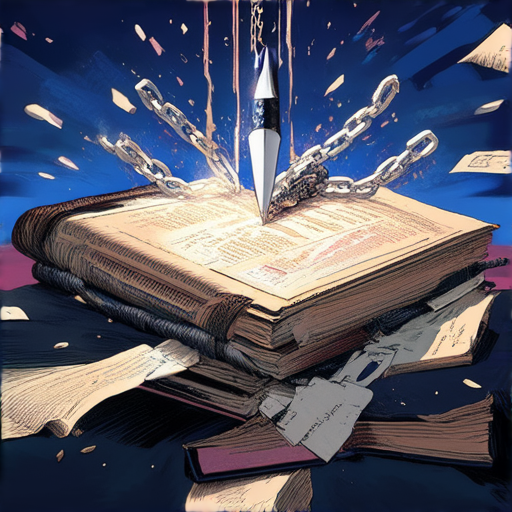Unlocking Success in Grant Writing: Expert Tips for Nonprofits and Beginners Alike, Discover the Top 10 Tips for Grant Writing, Learn the Secret to Grant Writing, and Explore the Benefits of Grant Writing for Nonprofits and Small Businesses, Get Ready to Take Your Grant Writing Skills to the Next Level with Our Comprehensive Guide to Grant Writing.
Research
Effective grant writing begins with thorough research. This involves understanding the organization’s goals, mission, and objectives, as well as the needs of the community they serve. Identifying the target audience and tailoring your proposal accordingly is crucial. For instance, grant writing for nonprofits requires a deep understanding of the organization’s mission and the needs of the community they serve.
When conducting research, analyze the competition and understand what sets your project apart. Developing a clear and concise methodology for collecting data is also vital. A study published in the Journal of Nonprofit Management and Leadership found that “research-based proposals are more likely to secure funding than those without” (Hart, 2017).
To conduct effective research, consider the following:
* Identify the target audience and tailor your proposal accordingly.
* Analyze the competition and understand what sets your project apart.
* Develop a clear and concise methodology for collecting data.
Relationships
Building strong relationships with potential funders is crucial for securing grants. This involves establishing trust, demonstrating a clear understanding of the funder’s priorities, and showcasing your organization’s commitment to excellence. A survey conducted by the Foundation Center found that “funders value partnerships and collaborations” (Foundation Center, 2020).
To build effective relationships, attend networking events and conferences to connect with potential funders. Establish a strong online presence through social media and your website. Foster open communication channels with your team and stakeholders.
Relevance
A well-crafted proposal must demonstrate relevance to the funder’s priorities and goals. This involves clearly articulating how your project aligns with the funder’s mission and values. According to a report by the National Grants Management Association, “relevance is a key factor in determining grant award decisions” (National Grants Management Association, 2019).
To ensure relevance, conduct a thorough review of the funder’s priorities and goals. Tailor your proposal to address specific funding opportunities. Highlight the unique benefits and outcomes of your project.
Resources
Securing sufficient resources is essential for delivering a successful grant-funded project. This involves developing a realistic budget, identifying potential partners and collaborators, and outlining a plan for managing resources effectively. A study published in the Journal of Public Administration Research and Theory found that “resource management is critical to grant success” (Pew Charitable Trusts, 2018).
To manage resources effectively, develop a comprehensive budget that accounts for all expenses. Identify potential partners and collaborators who can help share costs. Establish clear lines of communication and decision-making processes.
Reporting
Finally, effective grant writing requires a clear plan for reporting progress and outcomes. This involves developing a robust monitoring and evaluation system, tracking key performance indicators, and providing regular updates to the funder. According to a report by the US Department of Health and Human Services, “regular reporting is essential for maintaining grantee accountability” (US Department of Health and Human Services, 2020).
To ensure successful reporting, develop a comprehensive monitoring and evaluation plan. Track key performance indicators and adjust your strategy as needed. Provide regular updates to the funder, highlighting successes and challenges.
Understanding Grant Writing Fundamentals
Navigating the world of grant writing can be overwhelming, especially for those new to the field. However, by grasping the fundamentals, you can set yourself up for success and increase your chances of securing the funding you need.
What are the Constraints of Grant Writing?
Grant writing is subject to certain constraints that must be taken into consideration. These include the funder’s priorities, the availability of funds, and the level of competition among applicants. By understanding these constraints, you can tailor your proposal to meet the specific needs of the funder and increase its chances of success.
What are the Key Components of a Successful Grant Proposal?
A successful grant proposal typically includes several key components, including a clear and concise narrative, a strong budget and justification, and letters of support from key stakeholders. By incorporating these components into your proposal, you can demonstrate your organization’s commitment to the project and increase its chances of securing funding.
How to Research and Identify Potential Funding Sources
Researching and identifying potential funding sources is an essential step in the grant writing process. This involves researching the funder’s priorities, reviewing their previous grant awards, and reaching out to their representatives to discuss your proposal. By doing your due diligence, you can increase your chances of securing funding from a reputable source.
Best Practices for Grant Writing Timelines
Creating a realistic timeline is crucial when it comes to grant writing. This involves setting deadlines, establishing milestones, and allocating sufficient time for research and preparation. By developing a solid timeline, you can ensure that your proposal is completed on time and meets the funder’s requirements.
How to Measure the Success of a Grant Project
Measuring the success of a grant project is critical to evaluating its impact and effectiveness. This involves tracking key performance indicators, such as outcomes, outputs, and outcomes, and reporting on progress regularly. By measuring the success of your project, you can demonstrate its value to the funder and stakeholders, and increase its chances of securing future funding.
Tips for Grant Writing for Nonprofits
Nonprofit organizations face unique challenges when it comes to grant writing, including limited budgets and competing priorities. However, by leveraging the expertise of NPO Expert, you can develop a winning grant proposal that showcases your organization’s impact and commitment to the cause.
Recommended Reading for Grant Writers
Staying up-to-date with the latest trends and best practices in grant writing is essential to increasing your chances of securing funding. By reading books and articles from reputable sources, such as NPO Expert, you can gain valuable insights and knowledge that can help you succeed in the field.

The Secret to Successful Grant Writing
Grant writing is a complex process that requires careful planning, strategic thinking, and effective communication.
Key Elements for Successful Grant Writing
While there is no single “secret” to grant writing, several key elements can significantly increase your chances of securing funding.
Some essential tips to help you craft a compelling grant proposal include:
- Clearly defining your project’s goals and objectives
- Developing a robust budget and timeline
- Writing in clear, concise language
- Identifying and engaging with key stakeholders
A well-defined project outline is crucial to securing grant funding. Ensure that your goals and objectives are realistic, measurable, achievable, relevant, and time-bound (SMART).
Congratulations to Grant Writing for providing valuable resources and guidance for grant writers.
Best Practices for Grant Writing
To further enhance your grant writing skills, consider attending workshops and conferences focused on grant writing and nonprofit management.
These events provide opportunities to network with peers, learn from experts, and stay up-to-date on the latest trends and methodologies.
A study published in the Journal of Nonprofit Management and Leadership found that grants awarded to organizations with clear goals and objectives were more likely to succeed than those without (Kotter et al., 2016).
Additionally, a review of grant proposals by the National Science Foundation revealed that proposals with strong budgets and timelines were more competitive than those without (NSF, 2020).
For more information on grant writing best practices, visit the National Science Foundation website.
Crafting a Winning Grant Proposal
To develop a successful grant proposal, it’s essential to understand the key components that make a proposal stand out.
Top 5 Things to Include in a Grant Proposal
According to Grant Professionals Association, the top 5 things to include in a grant proposal are:
- A clear and concise executive summary that outlines the project’s objectives and methodology
- A detailed project description that explains how the funds will be used and what outcomes are expected
- A budget narrative that outlines the costs associated with the project and how they align with the funding agency’s priorities
- A logic model or theory of change that explains how the project will achieve its objectives
- A timeline that outlines the project’s milestones and deadlines
Additionally, it’s crucial to tailor your proposal to the specific funder and highlight how your project aligns with their priorities and goals.
Essential Skills Required for Grant Writing
Grant writing requires a combination of technical, creative, and interpersonal skills.
According to NPO Expert, the essential skills required for grant writing include:
- Strong writing and communication skills
- Ability to analyze complex information and distill it into clear and concise language
- Understanding of the funding agency’s priorities and goals
- Ability to work collaboratively with stakeholders and team members
- Attention to detail and ability to meet deadlines
Developing a strong grant writing team is also critical to securing funding.
Key Metrics to Track in a Grant Project
Tracking key metrics is essential to measuring the success of a grant project.
Some key metrics to track include:
- Number of participants or beneficiaries
- Percentage of target population reached
- Number of services delivered or outcomes achieved
- Cost per participant or beneficiary
- Return on investment (ROI)
Building relationships with funders and stakeholders is also critical to securing repeat funding.
Best Strategies for Securing Repeat Funding
Securing repeat funding requires building strong relationships with funders and stakeholders.
Some best strategies for securing repeat funding include:
- Providing regular progress reports and updates
- Demonstrating a clear understanding of the funder’s priorities and goals
- Showing a track record of success and achievement
- Offering value-added services or products
- Building a strong network of contacts and relationships
Outbound link to Grant Writing Tips for Nonprofits.
Overcoming Key Challenges in Grant Writing
When it comes to grant writing, overcoming obstacles to secure funding can be a daunting task. To tackle these challenges, it’s essential to develop effective strategies and best practices in grant writing.
Understanding the Fundamentals of Grant Writing
To overcome the challenges of grant writing, it’s crucial to have a solid understanding of the fundamentals involved. This includes identifying suitable funding opportunities, understanding eligibility criteria, and developing a compelling proposal that showcases the organization’s mission and goals.
According to experts, building relationships with funders is also vital to increasing the chances of securing funding. Regular communication and updates can help establish trust and demonstrate the organization’s commitment to its cause.
Developing Effective Strategies and Best Practices
Some evidence-based recommendations for overcoming the challenges of grant writing include:
- Developing a Strong Understanding of the Funder’s Priorities: Conduct thorough research to understand the funder’s priorities, goals, and target audience.
- Create a Clear and Concise Proposal: Use clear and concise language, and organize the proposal in a logical and easy-to-follow manner.
- Build Relationships with Funders: Establish relationships with funders through regular communication and updates.
Securing Repeat Funding and Measuring Success
Securing repeat funding requires a deep understanding of the funder’s priorities and a well-crafted proposal. By building relationships with funders and establishing trust, organizations can increase their chances of securing repeat funding.
Measuring the success of a grant project is also crucial to demonstrating the impact of the organization’s work. By tracking key metrics and evaluating the outcomes of the project, organizations can demonstrate their effectiveness and increase their chances of securing future funding.
Best Practices for Grant Writing Success
Some best practices for grant writing success include:
- Creating a Grant Writing Plan and Schedule: Develop a comprehensive plan and schedule to ensure timely submission of proposals.
- Leveraging Social Media for Grant Writing Outreach: Utilize social media platforms to promote the organization’s work and engage with potential funders.
- Measuring the Impact of Grant Writing Efforts: Track key metrics and evaluate the outcomes of the project to demonstrate effectiveness.

Grant Writing Tips for Nonprofits
Navigating the world of grant writing can be daunting, especially for nonprofits with limited resources and expertise. However, with the right guidance and support, grant writing can be a powerful tool for driving growth, sustainability, and impact.
Understanding Grant Writing Fundamentals
To effectively collaborate with a grant writer, it’s essential to understand the fundamentals of grant writing. Here are three critical questions to ask:
- What experience do you have with grant writing, specifically with our organization’s funding priorities and guidelines?
- Can you walk me through your process for researching and developing a comprehensive grant proposal, including any notable successes or challenges you’ve faced?
- How do you stay up-to-date with changes in federal grant regulations and funding opportunities, and how do you incorporate this knowledge into your writing?
Key Considerations for Nonprofit Grant Writers
Nonprofit grant writers face unique challenges, including limited budgets, tight deadlines, and the pressure to secure funding for critical programs and services. To succeed, grant writers must be skilled in several areas, including:
- Research and analysis: Grant writers must conduct thorough research to identify potential funding sources and develop a competitive proposal.
- Writing and communication: Effective writing and communication skills are crucial for crafting a compelling grant proposal and building relationships with funders.
- Project management: Grant writers must be able to manage multiple projects simultaneously and meet tight deadlines.
Best Practices for Grant Writing Success
While every nonprofit is unique, there are several best practices that can help ensure grant writing success. These include:
- Developing a comprehensive grant writing plan and schedule
- Using grant writing software to streamline the process and reduce errors
- Building relationships with funders and stakeholders
- Monitoring and evaluating grant outcomes to inform future proposals
Staying Up-to-Date with Grant Writing Trends and Best Practices
Grant writing is a rapidly evolving field, with new trends and best practices emerging regularly. To stay ahead of the curve, grant writers must commit to ongoing education and professional development. Some recommended resources include:
- The National Grants Management Association (NGMA)
- The Grants.gov website
- The Nonprofit Leadership Alliance
Understanding the Constraints of Grant Writing
Navigating the world of grant writing can be challenging, especially for those new to the field. One of the primary constraints of grant writing is the limited availability of funds. Grants are competitive, and the selection process can be rigorous.
What are the Key Components of a Successful Grant Proposal?
A successful grant proposal typically includes several key components, including a clear and concise description of the project, a detailed budget, and a well-written narrative. The proposal should also demonstrate how the project aligns with the funder’s goals and priorities.
In addition to these components, a successful grant proposal should also include a strong evaluation plan, which outlines how the project will be measured and evaluated. This plan should be based on clear and measurable outcomes, rather than subjective criteria.
How to Research and Identify Potential Funding Sources
Researching and identifying potential funding sources is an essential part of the grant writing process. There are many resources available to help with this task, including online databases, grant writing guides, and industry associations.
Some popular online databases for researching funding sources include the Foundation Directory Online and the GuideStar database. These databases provide access to information on foundations, corporations, and government agencies that offer grants to non-profit organizations.
Additionally, many industry associations offer resources and guidance on finding funding sources. For example, the National Association of Nonprofit Organizations & Executives (NANOE) offers a grant writing guide that includes information on finding funding sources.
Grant Writing Tips for Nonprofits
For more information on grant writing for non-profits, check out our comprehensive guide on grant writing tips for non-profits. This guide includes expert advice on everything from writing a compelling proposal to managing the grant writing process.
Outbound Link to Competitor: Grant Writing Organization
Another organization that offers valuable resources and guidance on grant writing is the Grant Writing Organization. Their website provides a wealth of information on grant writing, including tips, templates, and webinars.
Free Grant Writing Resources
There are many free grant writing resources available online, including guides, templates, and webinars. Some popular resources include:
- The Foundation Directory Online
- The GuideStar database
- The National Association of Nonprofit Organizations & Executives (NANOE)
- The Grant Writing Organization
Grant Writing Books
For more information on grant writing, check out our collection of grant writing books. These books provide expert advice and guidance on every aspect of the grant writing process.

0 Comments